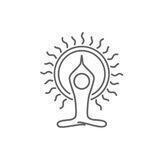•Spiritual books extracts and quotes.
•Secret Wisdom from Spiritual Teachers
•For Group Chat , book request: https://t.me/+12fhUERMnbo4MzJl
- Follow the Spiritual library channel on WhatsApp:
https://whatsapp.com/channel/0029VaDZs9DCsU9LlbdzbH34
Информация о канале обновлена 21.11.2025.

 Показать ещё
Показать ещё
